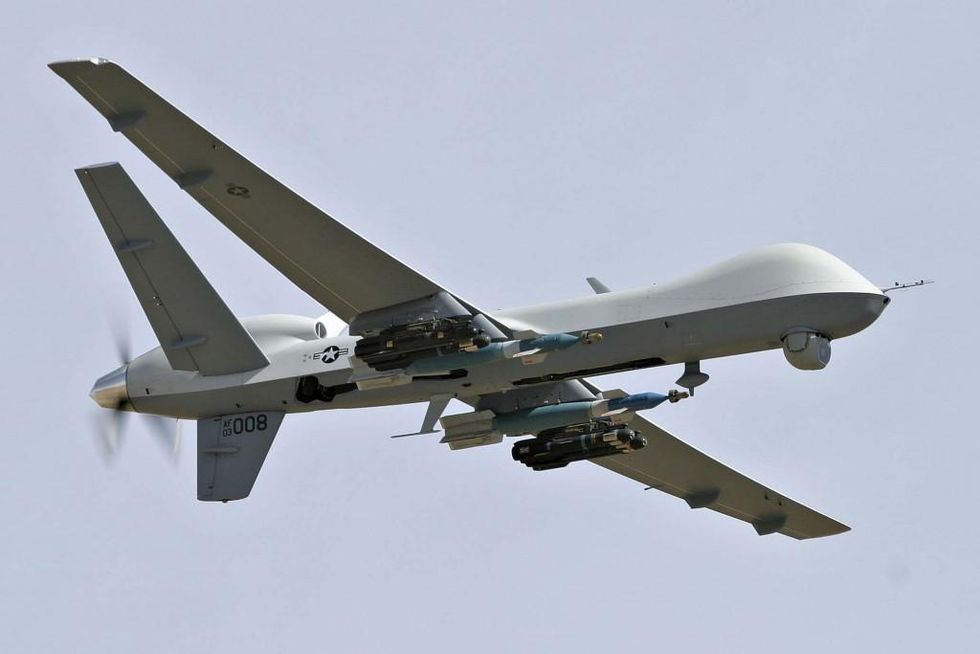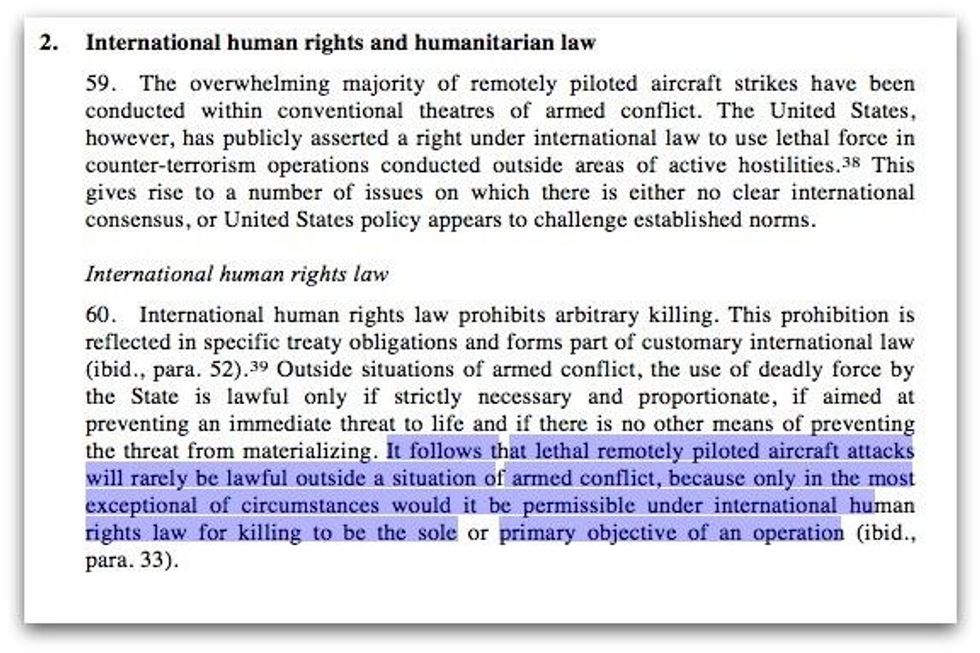Missile attacks carried out by U.S. drones--that have killed countless civilians and remain hidden behind an 'unacceptable' veil of secrecy--may be in violation of international law, UN special rapporteur on
human rights and counter-terrorism Ben Emmerson declared in a damning
24-page report released Friday.
Emmerson's statements add to a chorus of international voices expressing concern about the rising use of weaponized drones, including a report released Thursday by Christof Heyns, the UN's special rapporteur on extrajudicial, summary or arbitrary executions, citing far-reaching harm to civilians with no accountability.
Emmerson's report offers a chilling account of drone strikes in Afghanistan, Yemen, Iraq, Libya, Somalia, Pakistan and Gaza, documenting numerous incidents of civilian deaths at the hands of U.S. attacks and other world powers.
Having just returned from Islamabad, Pakistan, he explains that the Pakistan ministry of foreign affairs has documented over 330 drone strikes since 2002 that have killed 2,200 people, 400 of them civilians.
Emmerson also cites the "steady recorded rise" of drones used in Afghanistan by U.S. and UK forces, as well as civilians in Yemen believed to have been killed by U.S. drones.
Emmerson states that because the U.S. has essentially declared the 'war against terror' a transnational conflict without borders, it is difficult to make concrete pronouncements about the application and interpretation of international law. As Emmerson explains in one key section of his report (emphasis added):
Yet critics charge that the United States does not have the right to unilaterally re-define international law, and that its covert drone wars are simply illegal.
The CIA actively obstructs access to information about drone strikes, Emmerson charges, creating an "insurmountable obstacle to transparency." Emmerson writes:
The United States has to date failed to reveal its own data on the level of civilian casualties inflicted through the use of remotely piloted aircraft in classified operations conducted in Pakistan and elsewhere, or any information on its methodology for evaluating this. The Special Rapporteur does not accept that considerations of national security justify withholding statistical and basic methodological data of this kind...
Emmerson concludes by demanding that the U.S. "release its own data on the level of civilian casualties inflicted through the use of remotely piloted aircraft, together with information on the evaluation methodology used."
The report was published in advance of a UN General Assembly debate over the use of drones to take place in New York next Friday.
_____________________





